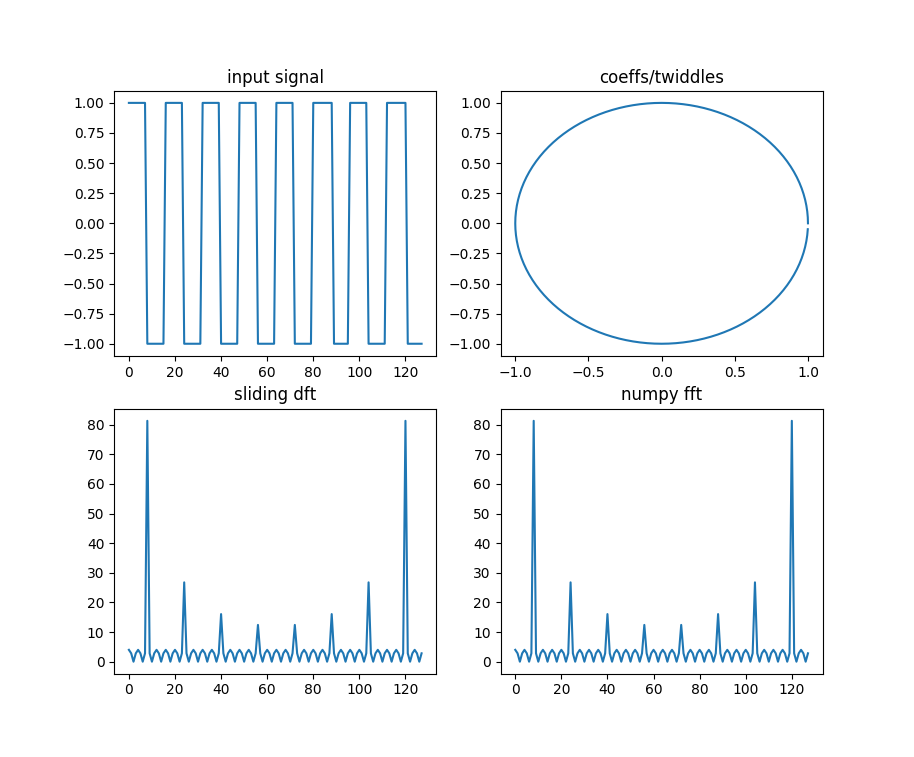having a go at some DSP on an FPGA. I'm basing the design on this paper:
http://www.comm.toronto.edu/~dimitris/ece431/slidingdft.pdf
This is a sliding discrete Fourier transform. It requires two real adds and one complex multiply per frequency bin. The transform is run for every new sample taken.
- make show-sdft - use yosys show to see how the design is inferred
- make debug-sdft - use iverilog, vvp and gtkwave to show the results of the testbench
- make - build everything
- make prog - program the icestick
- Read the resources
- Implement HDL twiddle factor ROM
- Implement an SDFT in Python using the same pattern
- Why doesn't makefile build from scratch? - missing a file
- Why do freq bin regs overflow almost immediately in the testbench? scaling
- How to do scaling - the twiddle factors are scaled to fill the hole register so things overflow quickly, divide by 127
- Why doesn't pnr work? - it does, but the module wasn't being used so yosys was removing it
- make the python tools parse test/localparams.vh - very basic but works OK
- adc connected, pinout is correct. sampleing has to be done on clock negedge
- how to deal with timing analysis being lower than the clock I'm using
- great video that explains what the Fourier transform is: https://www.youtube.com/watch?v=spUNpyF58BY
- paper on implementing an FFT on an FPGA http://web.mit.edu/6.111/www/f2017/handouts/FFTtutorial121102.pdf
- using Python to implement FFT: https://jakevdp.github.io/blog/2013/08/28/understanding-the-fft/
- sliding FFT https://www.dsprelated.com/showarticle/776.php
- stackoverflow answer about sdft: https://stackoverflow.com/questions/6663222/doing-fft-in-realtime
- paper on SDFT: http://www.comm.toronto.edu/~dimitris/ece431/slidingdft.pdf
- http://www.analog.com/media/en/technical-documentation/data-sheets/AD9283.pdf

